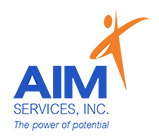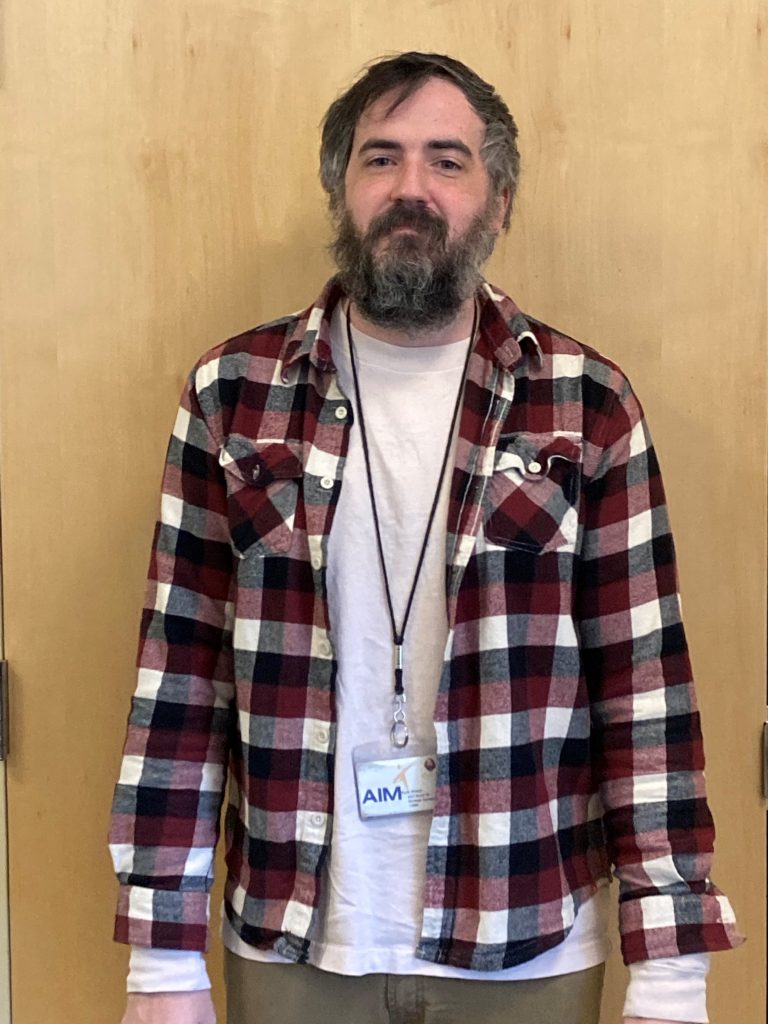Walt Adams:
Star Radio Sunday Jazz Brunch. I’m Walt Adams, time for our power of potential from AIM Services, supporting people with disability and traumatic brain injury. Each week, I look forward to talking to my good friend, Chris Lyons, Executive Director. Good morning, Chris.
Chris Lyons:
Good happy Sunday morning. Walt, it’s so good to hear your voice. We are getting some sunny weather, a little cooler, but spring’s right around the corner. How are you, my friend?
Walt Adams:
Chris, I am good. It feels as though there’s some optimism in the air as we look to springtime.
Chris Lyons:
Yes, absolutely. And next Wednesday is March 17th. And you know I’m a little bit Irish.
Walt Adams:
Right.
Chris Lyons:
The many times I’ve had the opportunity to visit my home country and the people in Ireland are very particular about supporting people with disabilities. They’ve been very much into strategies for community inclusion and they do support a broad array of people with challenges. And as we celebrate St Patrick’s Day, I want to remind your listeners that we also support people with acquired brain injuries. This is Traumatic Brain Injury Awareness Month, and we do support several people, both residentially and with day services for people that have an acquired or traumatic brain injury. And it’s just a wonderful program that few people know about because it’s emerging and it’s growing and we have some great young talent supporting that population.
Walt Adams:
One of those folks is our guest today, Kyle Welch, the Program Director of DOH Structured Day Program, helping people with traumatic brain injury. Looking forward to talking to him and he’s got a great story to tell.
Chris Lyons:
Yes, Kyle’s been a great addition to our team. He’s very thoughtful. He is a ball of energy. When he puts his mind to something, he accomplishes it. And he did something that’s new at AIM, and that’s open up a new program for day supports for people with acquired in traumatic brain injury. And he’s given people an opportunity to impart meaning in their lives on their terms. And we provide the same person centered support so that they can live life to the fullest. And we do so with a certain amount of empathy and compassion and caring. With St. Patrick’s around the corner, there’s an old Irish saying that I complained that I had no shoes until I met a man who had no feet. At AIM, we appreciate the good things that we all have in life and we bring our best to work every day. And so I’m so grateful to be able to work with Kyle and make a difference in this very, very important population that before was underserved.
Walt Adams:
Well, we’ll get to Kyle up next. By all means, make it a great day and a very happy St. Patty’s Day.
Chris Lyons:
Oh, same to you, my brother. We survived the pandemic and we’ll survive through the rest of the end of this. And I wish you all the best.
Walt Adams:
Thanks Chris.
Chris Lyons:
Be well, my friend.
Walt Adams:
Kyle Welch, welcome to the program.
Good morning. How are you doing?
Walt Adams:
Good. So glad you could join us this month. March is the National Traumatic Brain Injury Awareness Month. And you’ve got a program that you’re working on that helps to support them. Why don’t you tell us a little bit about it?
Kyle Welch:
Yeah. So the program that I run here at AIM is a structured day program for people with brain injuries who are DOH waiver. We also do service coordination. The idea of the program, kind of much like many structured day programs, is a safe space for people with brain injuries to come and work on skills and build independence. As you are probably well aware with AIM, we’re all about the power of potential. So my goal with the program is to really build independence and ostensibly work myself out of a job, giving people the structure and skills they need to not need me anymore and really get back to the quality of life that they want with the brain injury.
Walt Adams:
Well Kyle, one of the things about TBI is that it could happen to anyone at any time. And suddenly you find yourself in need of support because of a traumatic brain injury. Tell us a little bit about your role supporting people who have suddenly had a life-changing event,
Kyle Welch:
Right, yeah. I mean, I think that’s a really great point. It could be anyone you know, mother, father, brother, sister. Anyone could miss a catch with a football and get a brain injury. So it’s really important for us to kind of fill that awareness. And a lot of things we do here at the program, and these are people who were leading full and enriching lives prior to having a brain injury, a lot of people have kids, jobs. And so you kind of deal with the idea that you have changed. You are a different person now and you really need help to learn the things that you used to do every day. No problem, go to the store, shop, make lists, pay your bills. So we really create support systems, services and put those in place to allow people to get those lives back, get those skills back, and really, again, kind of be as independent as they were before and get their lives back on track prior to this really life changing event that they have dealt with.
Walt Adams:
Kyle, I was surprised to see the statistics of 2.8 million people suffer a traumatic brain injury each year in this country.
Kyle Welch:
I think it’s something we’ve noticed, definitely more awareness to it. I think getting people to those services, I think a lot of times people may have a brain injury or they may have someone in their family who had one and they don’t really know where to go with that. So I think we’ve noticed an increase in people getting linked to services, which might also kind of represent more numbers. TBIs themselves are a disability where there’s no real physical sign. It’s an invisible disability. So someone you may interact with everyday and they have it and you don’t know that and they’re really struggling. And so we try to build awareness to understanding what they’re going through, how you can help them and really kind of build that.
Walt Adams:
Our special guest today is Kyle Welch, Program Director of DOH Structured Day Program. Kyle, it must be very rewarding to help someone get from a point with a traumatic brain injury where they have trouble just doing the basic things to actually getting to their own independence.
Kyle Welch:
Yeah. I think coming prior to this from our amazing service coordination department, a lot of that was getting someone who was coming out of the hospital. I can think of a few individuals. We do part of the program is helping people transition out of rehab facilities or hospitals back into the community, spending many months sitting down with someone and working on a support plan on how to manage their own bills. And then it would be that time of month where I would be expecting them to call me for help with the bills. And then they wouldn’t and I would check in on them, “Hey, is everything all right? Did you remember?” They’re like, “Oh yeah, I got that. I did our system. I paid them. We’re good.”
Kyle Welch:
And again, that’s kind of my ultimate goal on our goals of the program is we want to give you the things you need to not need us anymore so you can go on and do that and we can go on and help someone else who needs it. There are people we have on our program that have masters and they’re now needing me in their homes to help them apply for Medicaid. And it’s tough to know that prior to that, you didn’t need help to do those things. So it’s really not only assisting them, but also giving them the hope and independence.
Walt Adams:
Well Kyle, thanks for being part of the program and helping us shed some light on the National Traumatic Brain Injury Awareness Month. For more information, just go to the AIM website.
Kyle Welch:
Yep. You go to the AIM website, there is information on the TBI waiver on there that covers both service coordination and our new structured day program.
Walt Adams:
Thanks Kyle.
Kyle Welch:
Thank you.
Walt Adams:
Kyle Welch, Program Director of DOH Structured Day Program for people with traumatic brain injury. And again, for more information on services or to join the AIM team, go to aimservicesinc.org for the power of potential.

